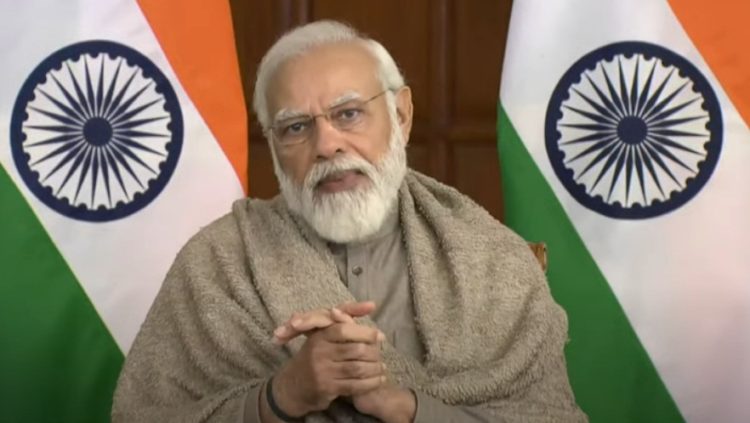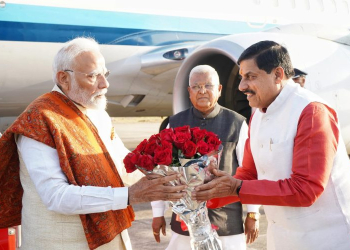New Delhi: With Prime Minister Narendra Modi announcing to celebrate January 16 as the National Startup Day, the meteoric rise of desi entrepreneurs in the past couple of years, which made global headlines, has received a tremendous boost.
Fresh data reveals that India produced 46 unicorns (companies with over $1 billion valuation) in 2021 alone, which raised a whopping $42 billion, up from $11.5 billion in 2020.
According to a latest report by Orios Venture Partners, the country now has 90 unicorns — from ShareChat to Cred and from Meesho to upGrad — with new ones across the spectrum joining the coveted unicorn club faster than ever.
India also emerged as the third largest startup ecosystem in the world in 2021, after the US and China, according to Hurun Research Institute.
India’s unicorns are currently worth more than $170 billion, and counting.
Modi said that like small businesses, which are the spine of India’s economy, startups are turning out to be the game changers.
According to Satish Shukla, Co-founder of automation and robotics firm Addverb Technologies, the Indian startup ecosystem has come a very long way and has matured a lot.
“We can see startups getting listed on the Indian bourses amid a slew of accessible VC/PE funds for the Indian startups. Several talented people are coming back to India to start on their own or work with startups, thereby reversing the brain-drain process,” Shukla told IANS.
Right from the inception of ‘Startup India’ in 2016, a slew of measures has been taken by the government like pushing for digital mode of payments, 100 per cent tax rebate on profit for a period of 3 years for eligible startups, waiver of norms for PSUs to promote procurement by startups and also encouraging PSUs to fund and nurture relevant startups.
“This has created good-quality jobs for people and has also encouraged a lot of young people to take up the plunge. There is still a long way to go for India and we need not only unicorns but decacorns in the near future that will solve the problems of 21st century India,” Shukla emphasised.
India has seen four ‘decacorns’ (companies with a valuation of $10 billion and above) to date — Flipkart, Paytm, Byju’s and OYO.
According to K.R. Sekar, Partner, Deloitte India, the demand and customer base for India is huge and an improved network and better telecom policy will further pave the way for the growth of startups.
Amid the strong buzz, very few Indian unicorns have touched $100 million in revenue and there will be immense pressure on these companies to perform.
“In my opinion, by 2030, 40 per cent of Nifty 50 would be young dynamic technology startups, displacing conventional companies,” said Ritesh Malik, doctor-turned-entrepreneur, investor, storyteller and philanthropist.
“Modi’s focus on building India into the world’s most dynamic and inclusive startup ecosystem is applaud-worthy. His consistent focus on creating job creators vs job seekers is the need of the hour for our nation,” he told IANS.
Ravish Naresh, CEO and Co-founder of fintech startup Khatabook, said that the new initiative by the government is an excellent acknowledgment of the contribution the startup ecosystem is providing to global markets with India-first products.
“The startups from India are attracting great investments because they are the breeding ground of new-age innovations focused on empowering the people in emerging markets with the right digital solutions, impacting the lives of millions,” Naresh told IANS.
Currently, India has the third-largest startup ecosystem in the world, with nearly 60,000 startups.
“While India is already a talent powerhouse, this move will further encourage millions to innovate and find solutions to business and societal challenges, thus making the country a global leader,” Mayank Kumar, Co-founder and MD, upGrad, told IANS.
Niraj Singh, Founder and CEO of used-car retailing platform Spinny, added: “The Indian startup business landscape is far more open and accessible, as compared to some of the biggest economies. We believe that the Indian startup environment will continue to grow at a rapid pace with more new-age businesses coming and shaping the economy”.
(IANS)



















